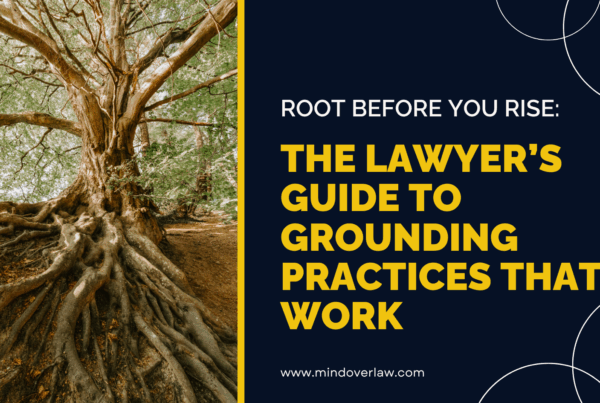We hear the words “work/life balance” all the time. Your physician might inquire about your work/life balance and your stress levels at your annual checkup. Your superior might mention work/life balance in your performance reviews. And while this phrase is used quite often, many people aren’t too sure of what it means or whether it’s actually attainable.
In an ideal circumstance, work-life balance means that there is harmony between your professional obligations and your personal ones. This could mean that you’re able to get everything done at work within 40 hours a week, make it to your child’s little league game, and have time to work out on a regular basis.
The Effects of Work-Life Imbalances
When the demands of our work life or our personal lives tap out our time and energy, it throws everything out of whack. An unexpected family emergency, illness, or an influx of work could make it difficult to meet all your obligations. Truth be told, when our obligations are out of balance, our needs aren’t met. Studies show that an imbalance between work and personal life doubles a person’s risks for heart attacks, impairs the immune system, leads to extreme fatigue, and contributes to depression. A work-life imbalance feels like you’re trapped in a never-ending maze where you feel like you can’t catch your breath or see any progress from your efforts.
Improving Your Work-Life Balance
It’s easy to recognize when our professional and personal lives are out of balance; however, it might be difficult to know what you can do about it. There are ways you can improve this imbalance and lower your stress. Achieving harmony between your work life and your personal obligations takes time and it takes work.
Here’s a few tips to get you started.
Unplug and Disconnect When Possible
While technology improves communication, constantly being available to everyone at work can affect your time with your loved ones. Before everyone had a smartphone, people accepted that they had to wait for a response. Today, technology and digital accessibility makes it incredibly hard to leave work at the office.
Unplugging and disconnecting from technology is easier than you might think. Start with small, attainable goals. For instance, make a rule not to have your mobile phone at hand when you’re having dinner with your family or attending your child’s baseball game. Carve out time each day where you can turn your phone off or leave it in another room. A break from never-ending notifications will reduce your stress and break the cycle of feeling obligated to immediately respond to everything.
Recognize that Perfectionism Comes at a Price
Most people develop a habit of perfectionism while they are young. When you’re younger and have less obligations, perfectionism might seem attainable but when you’re older and your resources are stretched thin, the pursuit of perfectionism can hold you back from productivity and achieving a healthier work/life balance. If you can accept that everything cannot be perfect and that perfectionism is actually destructive, it can help you prioritize your obligations in a healthier way.
Reduce Time-Wasting Activities
The amount of time you have each day is finite. Eliminating time-wasting activities will make it easier for you to meet the demands of your daily life. Time-wasting activities like falling down a rabbit hole of scrolling through Instagram and Facebook posts each day could take hours away from you by the end of the week. Identifying activities that waste your time will depend on your priorities. Take a look at your weekly activities and how your time is spent. Find ways to eliminate the activities that aren’t important to you. You might be surprised how much time you can create by avoiding small talk at the water cooler or the pesky neighbor who corners you at the mailbox each day.
Incorporate Regular Exercise and Meditation
Exercise and meditation are powerful weapons against work/life imbalance. If you’re extremely stressed and pressed for time, it might help to view these activities as “self-care”—meaning that 30 minutes of cardio at the gym or your 15-minute morning meditation are healthy pursuits that replenish your mind, body, and soul. Once you realize that you deserve time for exercise and meditation, it will be that much easier to make these tasks a priority.
Attorneys belong to a profession overwrought with stress and work/life imbalance. If you’re struggling to juggle your life at the office, in the courtroom, and at home, our life coaching services can help. We provide tools and resources to take charge of your life, maximize your productivity, and reduce your stress. Check out our blog and social media for more helpful tips.



